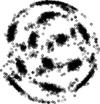You are here: Foswiki>Cosmo Web>LicMagTematy>InzTematy>AstroDevTematy (11 Jan 2024, BoudRoukema)Edit Attach
<< InzTematy
STOPINCLUDE is just above this line; projects similar to those below this line are out of date, although similar ideas may be viable after being brought up to date
- Software engineering projects
-
-
- Polish localisation (l12n) of WIMS (WWW Interactive Multipurpose Server), development of user support
- GNU Data Language - development of missing functions
- Rozbudowa systemu sterowania radioteleskopem RT32 oraz oprogramowania starującego odbiornikiem na pasmo 30-GHz
- Implementacja systemu komunikacji ze stacją odbiornika GPS dla pomiarów chwilowej, kolumnowej zawartości pary wodnej w atmosferze ziemskiej
- Analiza obrazów nieba z optycznych kamer wideo dla automatycznej detekcji bezchmurnych warunków pogodowych
-
-
Software engineering projects
- Set RODZAJPRACA=_rodzaj praca:_ inżynierski, specjalność: oprogramowanie wolne
- Set WIECEJINFO=https://cosmo.torun.pl/Cosmo/InzTematy
- Set PRACZBLEW=Student(ka) skonsultował(a)by także z Bartkiem Lwem; uwaga: ten projekt nie jest dostępny w roku 2018/2019.
Polish localisation (l12n) of WIMS (WWW Interactive Multipurpose Server), development of user support
rodzaj praca: inżynierski, specjalność: oprogramowanie wolne The WIMS online mathematics/physics exercise/examination web server (GPL/LGPL) makes it easier for students to avoid the temptation to cheat in arithmetical, algebraic and geometrical exercises and examinations, decreases lecturers' need to rewrite statistically similar but new exercises every semester, and increases the objectivity of students' gradings. The package is presently localised in several languages (en fr it es nl cn si ca), but there is no pl localisation. The initial aim of the project would be Polish language localisation of the package, following the present internationalisation structures in it. The work would partly consist of literal translation, but would require knowledge of physics and understanding of the required syntax, managing files, and publicly communicating with the developers. The package should be prepared for one of the main web server GNU/Linux distributions, i.e. debian and/or gentoo. The student should give a workshop type seminar at WFAiIS in order to help faculty learn how to use the localised package. A benefit of this project would be that the student would necessarily gain familiarity with a wide variety of free software mathematical packages used as WIMS' backends, e.g. octave, maxima, pari-gp and LaTeX. https://cosmo.torun.pl/Cosmo/InzTematy , https://sourcesup.renater.fr/projects/wimsdev/STOPINCLUDE is just above this line; projects similar to those below this line are out of date, although similar ideas may be viable after being brought up to date
GNU Data Language - development of missing functions
rodzaj praca: inżynierski, specjalność: oprogramowanie wolne The GNU Data Language (GDL) implements a high level language widely used by astronomers and in geosciences. As of GDL-0.9~rc4, GDL is claimed to have full syntax compatibility with IDL(TM) 6.0 and later and to support all IDL(TM) language elements. However, bug reports need to be checked, and many routines have not yet been coded, including those listed at http://aramis.obspm.fr/~coulais/IDL_et_GDL/Matrice_IDLvsGDL_intrinsic.html as well as others such as the SWAP_ENDIAN family. The student would be expected to communicate publicly and productively with the GDL upstream developers. Contributions to distribution level packaging (e.g. debian, gentoo) could also constitute part of this project. https://cosmo.torun.pl/Cosmo/InzTematy , http://gnudatalanguage.sourceforge.net/Rozbudowa systemu sterowania radioteleskopem RT32 oraz oprogramowania starującego odbiornikiem na pasmo 30-GHz
rodzaj praca: inżynierski, specjalność: oprogramowanie wolne Wymagania: b. dobra znajomość języka c/c++, Qt GUI lub Python, protokołów TCP/IP i architektury klient serwer. Student(ka) skonsultował(a)by także z Bartkiem Lwem; uwaga: ten projekt nie jest dostępny w roku 2018/2019. https://cosmo.torun.pl/Cosmo/InzTematyImplementacja systemu komunikacji ze stacją odbiornika GPS dla pomiarów chwilowej, kolumnowej zawartości pary wodnej w atmosferze ziemskiej
rodzaj praca: inżynierski, specjalność: oprogramowanie wolne Wymagania: b. dobra znajomość języka c/c++, lub Pythona, protokołów TCP/IP i architektury klient serwer. Opis: Od 2012 roku TCfA posiada dostep do danych z naziemnej stacji GPS umożliwiającej odczyt szeregu parametrów satelitów systemów GPS i GLONAS na dwóch standardowych częstotliwościach radiowych. Para wodna w atmosferze jest istotnym źródłem zakłóceń radiowych na falach centymetrowych odbioranych toruńskim radioteleskopem. Jej kolumnową zawartość można mierzyć z wykorzysatniem technik satelitarnych z użyciem stacji naziemnych takich jak ta zainstalowana w TCfA. Tematem pracy jest stworzenie interfacu do komunikacji ze stacją GPS poprzez łącza ethernetowe lub/i poprzez port szeregowy oraz udostępnienie oferowanych danych satelitarnych porzez wielozadaniowy serwer TCP pracujący w sieci lokalnej. Student(ka) skonsultował(a)by także z Bartkiem Lwem; uwaga: ten projekt nie jest dostępny w roku 2018/2019. https://cosmo.torun.pl/Cosmo/InzTematyAnaliza obrazów nieba z optycznych kamer wideo dla automatycznej detekcji bezchmurnych warunków pogodowych
rodzaj praca: inżynierski, specjalność: oprogramowanie wolne Wymagania: b. dobra znajomość języka c/c++ lub Python, metody numeryczne, analiza statystyczna, analiza danych, analiza Fourierowska. Student(ka) skonsultował(a)by także z Bartkiem Lwem; uwaga: ten projekt nie jest dostępny w roku 2018/2019. https://cosmo.torun.pl/Cosmo/InzTematy -- BoudRoukema - 28 Mar 2010Edit | Attach | Print version | History: r10 < r9 < r8 < r7 | Backlinks | View wiki text | More topic actions
Topic revision: r10 - 11 Jan 2024, BoudRoukema
 Copyright © by the contributing authors. All material on this collaboration platform is the property of the contributing authors.
Copyright © by the contributing authors. All material on this collaboration platform is the property of the contributing authors. Ideas, requests, problems regarding Foswiki? Send feedback
